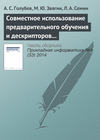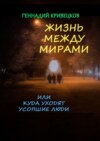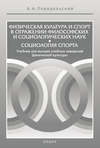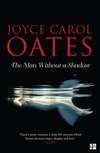Loe raamatut: «A Widow’s Story: A Memoir»
A Widow’s Story
A MEMOIR
Joyce Carol Oates

In memory of my husband
Raymond Smith
Oh God—you are going to be so unhappy.
—Gail Godwin
I am very sorry to learn that Ray died a couple of weeks ago. When someone I loved died I found it helpful to remind myself that this person was not less real because she wasn’t real now, just as people in New Zealand aren’t less real because they aren’t real here.
—Derek Parfit
When my mother died I adopted the Gestalt technique of saying to myself, whenever there was a surge of grief, “I choose to have a mother who is dead.”
—T. D., a former colleague at the University of Windsor
One breath at a time, Joyce. One breath at a time.
—Gloria Vanderbilt
Contents
Cover
Title Page
Epigraph
Part I: The Vigil
Chapter 1 - The Message
Chapter 2 - Car Wreck
Chapter 3 - The First Wrong Things
Chapter 4 - “Pneumonia”
Chapter 5 - Telemetry
Chapter 6 - E-mail Record
Chapter 7 - E. coli
Chapter 8 - Hospital Vigil(s)
Chapter 9 - Jasmine
Chapter 10 - Vigil
Chapter 11 - E-mail Record
Chapter 12 - Memory Pools
Chapter 13 - “I’m Not Crying for Any Reason”
Chapter 14 - The Call
Part II: Free Fall
Chapter 15 - “The Golden Vanity”
Chapter 16 - Yellow Pages
Chapter 17 - The Arrow
Chapter 18 - E-mail Record
Chapter 19 - Last Words
Chapter 20 - “You’ve Said Good-bye”
Chapter 21 - Double Plot
Chapter 22 - Cat Pee
Chapter 23 - Probate
Chapter 24 - “Sympathy Gift Basket”
Chapter 25 - The Betrayal
Chapter 26 - The Artisans
Chapter 27 - E-mail Record
Part III: The Basilisk
Chapter 28 - “Beady Dead Eyes Like Gems”
Chapter 29 - The Lost Husband
Chapter 30 - “How Are You?”
Chapter 31 - “Bells for John Whiteside’s Daughter”
Chapter 32 - The Nest
Chapter 33 - Ghost Rooms
Chapter 34 - E-mail Record
Chapter 35 - Fury!
Chapter 36 - Oasis
Chapter 37 - Bruised Knees
Chapter 38 - A Dream of Such Happiness!
Chapter 39 - “We Want to See You Soon”
Chapter 40 - Moving Away
Chapter 41 - “Won’t Be Seeing You for a While”
Chapter 42 - “Can’t Find You Where Are You”
Chapter 43 - “I Am Sorry to Inform You”
Part IV: Purgatory, Hell
Chapter 44 - “Neither Joyce Nor I Can Come to the Phone Right Now”
Chapter 45 - The Military Order of the Purple Heart
Chapter 46 - In Motion!
Chapter 47 - In Motion!—“Still Alive”
Chapter 48 - In Motion! —“Mouth of the Rat”
Chapter 49 - In Motion!— “The Wonder Woman of American Literature”
Chapter 50 - In Motion!— “You Can’t Sit There”
Chapter 51 - “Never Forget”
Chapter 52 - The Widow’s Secret
Chapter 53 - Congratulations! I
Chapter 54 - Congratulations! II
Chapter 55 - E-mail Record
Chapter 56 - The Cache
Chapter 57 - Morbidity Studies
Chapter 58 - The Intruder
Part V: “You Looked So Happy”
Chapter 59 - Too Soon!
Chapter 60 - “Leaving Las Vegas”
Chapter 61 - “The Unlived . . .”
Chapter 62 - Cruel Crude Stupid “Well-Intentioned”
Chapter 63 - “If . . .”
Chapter 64 - “Never, Ever That Again”
Chapter 65 - The “Real World”
Chapter 66 - Little Love Story
Chapter 67 - Tulips
Chapter 68 - Please Forgive!
Chapter 69 - “Happy, and Excited”
Chapter 70 - Blood in the Water!
Chapter 71 - Walking Wounded
Chapter 72 - Dead Woman Walking
Chapter 73 - Taboo
Chapter 74 - “Ashamed to Be ‘White’ ”
Chapter 75 - It Made No Difference
Chapter 76 - Sinkholes
Chapter 77 - The Garden
Chapter 78 - The Pilgrimage
Chapter 79 - “You Looked So Happy”
Chapter 80 - Black Mass I
Chapter 81 - Black Mass II
Chapter 82 - “Good Girl!”
Chapter 83 - The Resolution
Chapter 84 - “Did Ray Like Swing?”
Chapter 85 - “Title”
Chapter 86 - “Your Husband Is Still Alive”
Epilogue
Three Small Sightings in August
The Widow’s Handbook
Acknowledgments
By the same author
Copyright
About the Publisher
Part I The Vigil
“My husband died, my life collapsed.”
Chapter 1 The Message
February 15, 2008. Returning to our car that has been haphazardly parked—by me—on a narrow side street near the Princeton Medical Center—I see, thrust beneath a windshield wiper, what appears to be a sheet of stiff paper. At once my heart clenches in dismay, guilty apprehension—a ticket? A parking ticket? At such a time? Earlier that afternoon I’d parked here on my way—hurried, harried—a jangle of admonitions running through my head like shrieking cicadas—if you’d happened to see me you might have thought pityingly That woman is in a desperate hurry—as if that will do any good—to visit my husband in the Telemetry Unit of the medical center where he’d been admitted several days previously for pneumonia; now I need to return home for a few hours preparatory to returning to the medical center in the early evening—anxious, dry-mouthed and head-aching yet in an aroused state that might be called hopeful—for since his admission into the medical center Ray has been steadily improving, he has looked and felt better, and his oxygen intake, measured by numerals that fluctuate with literally each breath—90, 87, 91, 85, 89, 92—is steadily gaining, arrangements are being made for his discharge into a rehab clinic close by the medical center—(hopeful is our solace in the face of mortality); and now, in the late afternoon of another of these interminable and exhausting hospital-days—can it be that our car has been ticketed?—in my distraction I’d parked illegally?—the time limit for parking on this street is only two hours, I’ve been in the medical center for longer than two hours, and see with embarrassment that our 2007 Honda Accord—eerily glaring-white in February dusk like some strange phosphorescent creature in the depths of the sea—is inexpertly, still more inelegantly parked, at a slant to the curb, left rear tire over the white line in the street by several inches, front bumper nearly touching the SUV in the space ahead. But now—if this is a parking ticket—at once the thought comes to me I won’t tell Ray, I will pay the fine in secret.
Except the sheet of paper isn’t a ticket from the Princeton Police Department after all but a piece of ordinary paper—opened and smoothed out by my shaky hand it’s revealed as a private message in aggressively large block-printed letters which with stunned staring eyes I read several times like one faltering on the brink of an abyss—
LEARN TO PARK STUPPID BITCH
In this way as in that parable of Franz Kafka in which the most profound and devastating truth of the individual’s life is revealed to him by a passer-by in the street, as if accidentally, casually, so the Widow-to-Be, like the Widow, is made to realize that her situation however unhappy, despairing or fraught with anxiety, doesn’t give her the right to overstep the boundaries of others, especially strangers who know nothing of her—“Left rear tire over the white line in the street.”
Chapter 2 Car Wreck
We were in a car wreck. My husband died but I survived.
This is not (factually) true. But in all other ways, it is true.
January 2007. A little more than a year before my husband was stricken with a severe case of pneumonia, and brought by his anxious wife to the ER of the Princeton Medical Center in blissful ignorance of the fact—the terrible and irrefutable fact—that the reverse journey would never occur bearing him back home—we were in a serious car accident, the first of our married life.
It would seem ironic in retrospect, that this accident in which Ray might easily have been killed, but was not killed, occurred hardly more than a mile from the Princeton Medical Center at the intersection of Elm Road and Rosedale Road; this was an intersection we drove through invariably on our way to Princeton, and on our way home; it is an intersection I must drive through as in a dream of nightmare repetition in which my very grief is rebuked You might have died here! You have no right to grieve, your life is a gift.
The accident occurred on a weeknight as we entered the intersection: out of nowhere—on the driver’s side—there came a hellish glare of headlights, a screeching of brakes and a tremendous crash as the front of our car was demolished, windshields shattered and air bags detonated.
In the immediate aftermath of the crash we were too confused to gauge how extraordinarily lucky we’d been—in the days, weeks, months to follow we would try to fathom this elusive fact—that the other vehicle had struck only the front of our car, the engine, hood, front wheels; a few inches back and Ray would have been killed or seriously injured, crushed in the wreck. It was beyond our capacity to grasp how close we’d come to a horrific accident—if for instance the other vehicle had sped into the intersection even a half-second later . . .
Inside the wreck of our car there was a gritty smoldering odor. Our air bags had exploded with remarkable rigor. If you have never been in a vehicle in which air bags have exploded you will have a difficult time imagining how violent, how forceful, how bellicose air bags are.
Vaguely you might expect something cushiony, even balloon-like—no.
You might expect something that will not injure you in the service of protecting you from injury—no. In the instant of the air bag explosion Ray’s face, shoulders, chest and arms had been battered as if he’d been the hapless sparring partner of a heavyweight boxer; his hands gripping the steering wheel were splattered with acid, leaving coin-sized burn marks that would sting for weeks. Beside him I was too rattled to comprehend how powerfully I’d been hit by the air bag—I’d thought that this was the dashboard buckling in, all but crushing me in the passenger’s seat so that I could barely breathe. (For the next two months my bruised chest, ribs, and arms would be so painful that I could barely move without wincing and dared not laugh heedlessly.) But in our wrecked car in the euphoria of cortical adrenaline we had little awareness of having been so battered and bruised as we managed to force our car doors open and step out onto the pavement. A wave of relief swept over us—We are alive! We are unharmed!
Princeton police officers arrived at the accident scene. An ambulance arrived bearing emergency medical workers. I recalled that one of my Princeton undergraduate students, a young woman, was a volunteer for the Princeton Emergency Medical Unit and I hoped very much that this young woman would not be among the medical workers at the scene. I hoped very much that this episode would not be reported excitedly back and circulated among my students Guess who was in a car crash last night—Prof. Oates!
Strongly it was recommended that “Raymond Smith” and “Joyce Smith” be taken by ambulance to the ER to be examined—especially it was important to be X-rayed—but we declined, saying that we were all right, we were certain we were all right. Yet in the faux-euphoric aftermath of the crash in which there was no pain nor hardly an awareness of the very concept of pain we insisted that we were fine and wanted to go home.
Standing in the cold, shivering and shaky and our car pulverized as if a playful giant had twisted it in his hands and let it drop—there was nothing we wanted so badly as to go home.
We were asked if we were “refusing” medical treatment and we protested we weren’t refusing medical treatment—we just didn’t think that we needed it.
Refused then, the officer noted, filling out his report.
Two police officers drove us home in their cruiser. They were kindly, courteous. Near midnight we entered our darkened house. It seemed that we’d been gone for far longer than just an evening and that we’d been on a long journey. Our nerves were jangled like broken electric wires in the street. I’d begun to shiver, convulsively. I was dry-eyed but exhausted and depleted as if I’d been weeping. I saw that Ray was all right—as he insisted—we were both all right. It was true that we’d come close to catastrophe—but it hadn’t happened. Somehow, that fact was difficult to comprehend, like trying to fit a large and unwieldy thought into a small area of the brain.
I began to feel the first twinges of pain in my chest. When I lifted my arm. When I laughed, or coughed.
Ray discovered reddened splotches on his hands—“I’ve been burnt? How the hell have I been burnt?” He ran cold water onto his hands. He took Bufferin, for pain.
I took Bufferin, for pain. I had no wish to go to bed anticipating a miserable insomniac night, but by 2 A.M. we’d gone to bed and were sleeping, to a degree. Glaring headlights, screeching brakes, that moment of astonishing impact. . . . The sharp chemical smell, the air bags striking like crazed aliens in a science-fiction horror film . . .
“I’ll go to get us a new car. Tomorrow.”
Calmly Ray spoke in the dark. There was comfort in his words that suggested routine, custom.
Comfort in that Ray would supervise the aftermath of the wreck.
Raymond—“wise protector.”
He was eight years older than I was, most of the calendar year. Born on March 12, 1930. I was born on June 16, 1938.
How long ago, these births! And how long we’d been married, since January 23, 1961! At the time of the car wreck we would celebrate our forty-seventh wedding anniversary in a few weeks. You would not think, reading this, if you are younger than we were, that to us these dates were unreal, or surreal; we’d felt, through our long marriage, as if we’d only just met a few years before, as if we were “new” to each other, still “becoming acquainted” with each other; often we were “shy” with each other; there were many things we did not wish to tell each other, or to “share” with each other, in the way of individuals who are only just becoming intimately acquainted and don’t want to risk offending, or surprising.
Most of my novels and short stories were never read by my husband. He did read my non-fiction essays and my reviews for such publications as the New York Review of Books and the New Yorker—Ray was an excellent editor, sharp-eyed and informed, as countless writers published in Ontario Review have said—but he did not read most of my fiction and in this sense it might be argued that Ray didn’t know me entirely—or even, to a significant degree, partially.
Why was this?—there are numerous reasons.
I regret it, I think. Maybe I do.
For writing is a solitary occupation, and one of its hazards is loneliness.
But an advantage of loneliness is privacy, autonomy, freedom.
Thinking then, that night of the car wreck, and subsequent nights and days as phantom pains stabbed in my chest and ribs, and I despaired that the ugly yellowish purple bruises would ever fade, that, if Ray died, I would be utterly bereft; far better for me to die with him, than to survive alone. At such times I did not think of myself as a writer primarily, or even as a writer, but as a wife.
A wife who dreaded any thought of becoming a widow.
In the morning our lives would be returned to us but subtly altered, strange to us as others’ lives that bore only a superficial resemblance to our own but were not our own. It would have been a time to say Look—we might have been killed last night! I love you, I’m so grateful that I am married to you . . . but the words didn’t quite come.
So much to say in a marriage, so much unsaid. You reason that there will be other times, other occasions. Years!
That morning Ray called the Honda dealer from whom he’d bought the car and arranged to be picked up and brought to the showroom on State Road, to buy a replacement—a Honda Accord LX, 2007 model (with sunroof) which he drove into our driveway in the late afternoon, gleaming white like its predecessor.
“Do you like our new car?”
“I always love our new car.”
And so I would think He might have died then. Both of us. January 4, 2007. It might have happened so easily. A year and six weeks—what remained to us—was a gift. Be grateful!
Chapter 3 The First Wrong Things
February 11, 2008. There is an hour, a minute—you will remember it forever—when you know instinctively on the basis of the most inconsequential evidence, that something is wrong.
You don’t know—can’t know—that it is the first of a series of “wrongful” events that will culminate in the utter devastation of your life as you have known it. For after all it may not be the first in a series but only an isolated event and your life not set to be devastated but only just altered, remade.
So you want to think. So you are desperate to think.
The first wrong thing on this ordinary Monday morning in February is—Ray has gotten out of bed in the wintry dark before dawn.
By the time I discover him in a farther corner of the house it’s only just 6:15 A.M. and he has been up, by his account, since 5 A.M.
He has taken a shower, dressed, and fed the cats breakfast at an unnaturally early hour; he has brought in the New York Times in its transparent blue wrapper; he has made himself a spare little breakfast of fruit and cottage cheese and is eating—trying to eat—seated at our long white Parsons table; through our glass-walled gallery I can see him, across the courtyard, a lone figure haloed in light amid the shadowy room behind him. If he were to glance up, as he has not done, he would see me watching him, and he would see our dogwood tree in the courtyard transformed in the night, clumps of wet snow on the branches like blossoms.
In fact this is a white-blossoming dogwood Ray planted himself several years ago.
This little tree Ray takes a special pride in, and feels a special tenderness for, for it hadn’t thrived initially, it had required extra care and so its survival is a significant part of its meaning to us, and its beauty.
If in wifely fashion I want to praise my husband, or to cheer him if he requires cheering, I have only to speak of the dogwood tree—this will evoke a smile. Usually!
For Ray is the gardener of our household, not me. As Ray is an editor of literary writing beloved by writers whose books he has edited and published—so Ray is an editor of living things. He doesn’t create them or cause them to live but he tends them, cares for them and allows them to thrive—to blossom, to yield fruit. Like editing, gardening requires infinite patience; it requires an essential selflessness, and optimism. Though I love gardens—especially, I love Ray’s garden in the summer and early fall—it’s as an observer and not as a connoisseur of growing things that to me send cruelly paradoxical signals: the exquisitely blooming orchid that, brought home, soon loses its petals, and never again regains them; the thriving squash vines that, mysteriously, as if devoured from within, shrivel and die overnight. Ray is of an age to recall “victory gardens” in the early 1940s in Milwaukee, Wisconsin—in his telling, there is an echo of childhood romance about such gardens, which everyone kept as in a communal civilian war-effort. Ray’s garden is a way of evoking these idyllic memories. How happy he has always been, outdoors! Driving to the nursery, to buy plants! And how eager for winter to end, that he might have the garden plowed and dare to set in early things like lettuce, arugula despite the risk of a heavy frost.
The gardener is the quintessential optimist: not only does he believe that the future will bear out the fruits of his efforts, he believes in the future.
You would see that all the growing things Ray has planted on our two-acre property, like the dogwood tree, forsythia bushes, peonies, “bleeding hearts,” tulips, hillsides of crocuses, daffodils and jonquils, are utterly commonplace; yet, to us, these are living talismans suffused with meaning. Thoughtfulness, tenderness. Patience. An imagining of a (shared) future.
A memory comes to me: in our shabby-stylish rented Chelsea duplex, in the belated and chilly spring of our sabbatical year in London 1971–1972, Ray is tending a bedraggled little clump of brightly colored nasturtiums on our small terrace. The potted soil is probably very poor, there are rapacious insects devouring their leaves, but Ray is determined to nurse the nasturtiums along and through a window I observe him, unseen by him; I feel a sudden faintness, a rush of love for him, and also the futility of such love—as my then-young husband was determined to keep the bedraggled nasturtiums alive, so we are determined to keep alive those whom we love, we yearn to protect them, shield them from harm. To be mortal is to know that you can’t do this, yet you must try.
Our sabbatical year in London was a mixed experience, for me. I was homesick, rootless. Unaccustomed to not working—that is, to not teaching—I felt useless, idle; my only solace was my writing, into which I poured enormous concentration—re-creating, with an obsessiveness that swerved between elation and compulsion, the vividly haunting oneiric cityscape of Detroit, in the novel Do With Me What You Will. Ray, however, thoroughly enjoyed the sabbatical year—as Ray thoroughly enjoyed London, our long, long walks in the beautiful damply green parks of London of which our favorite was Regent’s Park, and those parts of the U.K.—Cornwall, Wessex—we saw on driving trips. My husband has a capacity for enjoying life that isn’t possible for me, somehow.
There are those—a blessed lot—who can experience life without the slightest glimmer of a need to add anything to it—any sort of “creative” effort; and there are those—an accursed lot?—for whom the activities of their own brains and imaginations are paramount. The world for these individuals may be infinitely rich, rewarding and seductive—but it is not paramount. The world may be interpreted as a gift, earned only if one has created something over and above the world.
To this, Ray would respond with a bemused smile. You take yourself so seriously. Why?
Always Ray has been the repository of common sense in our household. The spouse who, with a gentle tug, holds in place the recklessly soaring kite, that would careen into the stratosphere and be lost, shattered to bits.
On this Monday morning in mid-February 2008 the sun hasn’t yet risen. The sky looks steely, opaque. Approaching my husband I feel a tinge of unease, apprehension. Sitting at the table Ray appears hunched over the newspaper, his shoulders slumped as if he’s very tired; when I ask him if something is wrong quickly he says no—no!—except he has been feeling “strange”—he woke before 5 A.M. and was unable to get back to sleep; he was having trouble breathing, lying down; now he’s uncomfortably warm, sweaty, and seems short of breath . . .
These symptoms he tells me in a matter-of-fact voice. So the husband shifts to the wife the puzzle of what to make of such things, if anything; like certain emotions, too raw to be defined, such information can only be transferred to the other, the cautious, caring, and hyper-vigilant spouse.
More often, the wife is the custodian of such things. I think this is so. The wife is the one elected to express alarm, fear, concern; the wife is the one to weep.
Shocking to see, the smooth white countertop which is always kept spotless is strewn now with used tissues. Something in the way in which these wet wadded tissues are scattered, the slovenliness of it, the indifference, is not in Ray’s character and not-right.
Another wrong thing, Ray tells me that he has already called our family doctor in Pennington and left a message saying he’d like to see the doctor that day.
Now this is serious! For Ray is the kind of husband who by nature resists seeing a doctor, stubborn and stoic, even when obviously ill the kind of husband with whom a wife must plead to make an appointment with a doctor.
The kind of person whose pain threshold is so high, often he tells our dentist not to inject his gums with Novocain.
Ray flinches when I touch him, as if my touch is painful. His forehead is both feverish and clammy, damp. His breath is hoarse. Close up I see that his face is sickly pale yet flushed; his eyes are finely bloodshot and don’t seem to be entirely in focus.
In a panic the thought comes to me Has he had a stroke?
A friend of ours had a stroke recently. A friend at least a decade younger than Ray, and in very fit condition. The stroke hadn’t been severe but our friend was shaken, we were all shaken, that so evidently fit a man had had a stroke and was exposed as mortal, as he had not previously seemed, swaggering and luminous in our midst. And Ray, never quite so swaggering or luminous, never so visibly fit, is taking medication for “hypertension”—high blood pressure—which medication is supposed to have helped him considerably; yet now he’s looking flushed, he’s looking somewhat dazed, distressed, he hasn’t finished his breakfast, nor has he read more than the first sprawling section of the New York Times in whose ever more Goyaesque war photos and columns of somber newsprint an ennui of such gravity resides, the sensitive soul may be smothered if unwary.
Post 9/11 America! The war in Iraq! The coolly calibrated manipulation of the credulous American public, by an administration bent upon stoking paranoid patriotism! Avidly reading the New York Times, the New York Review of Books, the New Yorker and Harper’s, like so many of our Princeton friends and colleagues Ray is one of those choked with indignation, alarm; a despiser of the war crimes of the Bush administration as of its cunning, hypocrisy, and cynicism; its skill at manipulating the large percentage of the population that seems immune to logic as to common sense, and history. Ray’s natural optimism—his optimist-gardener soul—has been blunted to a degree by months, years, of this active and largely frustrated dislike of all that George W. Bush represents. I have learned not to stir his indignation, but to soothe it. Or to avoid it. Thinking now Maybe it’s something in the news. Something terrible in the news. Don’t ask!
But Ray is too sick to be upset about the latest suicide bombing in Iraq, or the latest atrocity in Afghanistan, or the Gaza Strip. The newspaper pages are scattered, like wadded tissues. His breathing is forced, labored—an eerie rasping sound like a strip of plastic fibrillating in the wind.
Calmly I tell him I want to take him to the ER. Immediately. He tells me no—“That’s not necessary.”
I tell him yes, it is necessary. “We’ll go now. We can’t wait for—” naming our Pennington physician whose office wouldn’t open for another hour or more, and who probably couldn’t see Ray until the afternoon.
Ray protests he doesn’t want to go to the ER—he isn’t that sick—he has much work to do this morning, on the upcoming issue of Ontario Review, that can’t be put off—the deadline for the May issue is soon. But on his feet he moves unsteadily, as if the floor were tilting beneath him. I slip my arm around his waist and help him walk and the thought comes to me This is not right. This is terribly wrong for a man’s pride will rarely allow him to lean on any woman even a wife of forty-seven years. A man’s pride will rarely allow him to concede that yes, he is seriously ill. And the ER—“emergency room”—the very concession of helplessness, powerlessness—is the place to which he should be taken.
He’s coughing, wincing. His skin exudes an air of sickly heat. Yet the previous night Ray had seemed fine for most of the evening—he’d even prepared a light meal for us, for dinner; I had been away and had returned home at about 8 P.M. (This, our final meal together in our house, the final meal Ray would prepare for us, was Ray’s specialty: fried eggs, whole grain bread, Campbell’s soup—chicken with wild rice. I would call him from the airport—Philadelphia or Newark—when my plane arrived and he would prepare our meal for my arrival home an hour later. If the season was right he would also place on my desk a vase with a single flower from his garden . . . ) At dinner he’d been in good spirits but shortly afterward with disconcerting swiftness at about 10:30 P.M. he began coughing fitfully; he’d become very tired, and went to bed early.
Forever afterward I would think: I was away for two days. I was a “visiting writer” at U-C Riverside at the invitation of the distinguished American studies critic and scholar Emory Elliot, formerly a Princeton colleague. In these two days my husband had gotten sick. Ray would acknowledge, yes, probably he’d been outside without a jacket or a cap and possibly he’d gotten a cold in this way though we are told that this isn’t so—scientific tests have proved—that cold air, even wet, doesn’t cause colds; colds are caused by viruses; bad colds, by virulent viruses; you don’t “catch” a cold by running out to the mailbox without a jacket, or hauling recycling cans to the curb; unless of course you are exhausted, or your immune system has been weakened. In these ways you may “catch” a cold but it is not likely to be a fatal cold, possibly just a “bad cold” which is what my husband seems suddenly to have, that has spiraled out of control.
Yet another wrong thing—I will recall this, later—as I reason with my husband now in the kitchen where our two cats are staring at us wide-tawny-eyed, for how incongruous our behavior, at this twilit hour before dawn when we are usually in another part of the house—suddenly he gives in and says yes, all right—“If you think so. If you want to drive me.”
“Of course I want to drive you! Let’s go.”




















